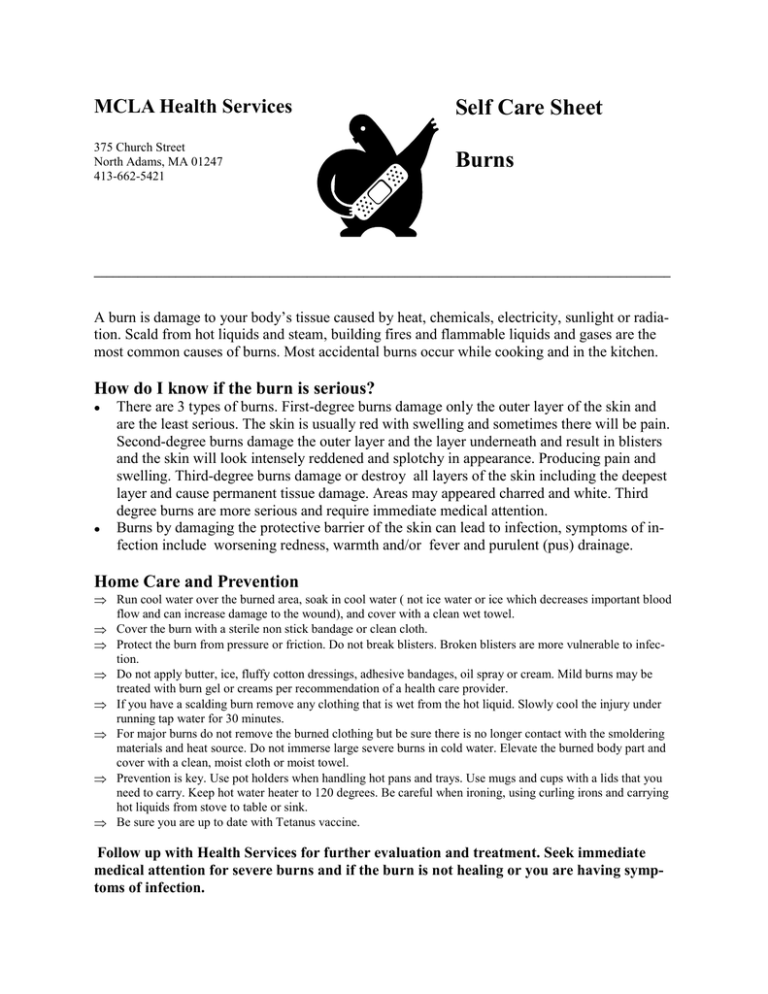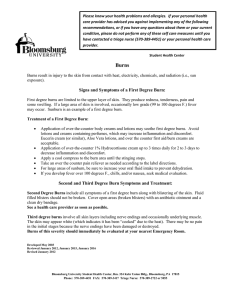Burns - MCLA
advertisement

MCLA Health Services Self Care Sheet 375 Church Street North Adams, MA 01247 413-662-5421 Burns ____________________________________________________________________________________________ A burn is damage to your body’s tissue caused by heat, chemicals, electricity, sunlight or radiation. Scald from hot liquids and steam, building fires and flammable liquids and gases are the most common causes of burns. Most accidental burns occur while cooking and in the kitchen. How do I know if the burn is serious? There are 3 types of burns. First-degree burns damage only the outer layer of the skin and are the least serious. The skin is usually red with swelling and sometimes there will be pain. Second-degree burns damage the outer layer and the layer underneath and result in blisters and the skin will look intensely reddened and splotchy in appearance. Producing pain and swelling. Third-degree burns damage or destroy all layers of the skin including the deepest layer and cause permanent tissue damage. Areas may appeared charred and white. Third degree burns are more serious and require immediate medical attention. Burns by damaging the protective barrier of the skin can lead to infection, symptoms of infection include worsening redness, warmth and/or fever and purulent (pus) drainage. Home Care and Prevention Run cool water over the burned area, soak in cool water ( not ice water or ice which decreases important blood flow and can increase damage to the wound), and cover with a clean wet towel. Cover the burn with a sterile non stick bandage or clean cloth. Protect the burn from pressure or friction. Do not break blisters. Broken blisters are more vulnerable to infection. Do not apply butter, ice, fluffy cotton dressings, adhesive bandages, oil spray or cream. Mild burns may be treated with burn gel or creams per recommendation of a health care provider. If you have a scalding burn remove any clothing that is wet from the hot liquid. Slowly cool the injury under running tap water for 30 minutes. For major burns do not remove the burned clothing but be sure there is no longer contact with the smoldering materials and heat source. Do not immerse large severe burns in cold water. Elevate the burned body part and cover with a clean, moist cloth or moist towel. Prevention is key. Use pot holders when handling hot pans and trays. Use mugs and cups with a lids that you need to carry. Keep hot water heater to 120 degrees. Be careful when ironing, using curling irons and carrying hot liquids from stove to table or sink. Be sure you are up to date with Tetanus vaccine. Follow up with Health Services for further evaluation and treatment. Seek immediate medical attention for severe burns and if the burn is not healing or you are having symptoms of infection.


